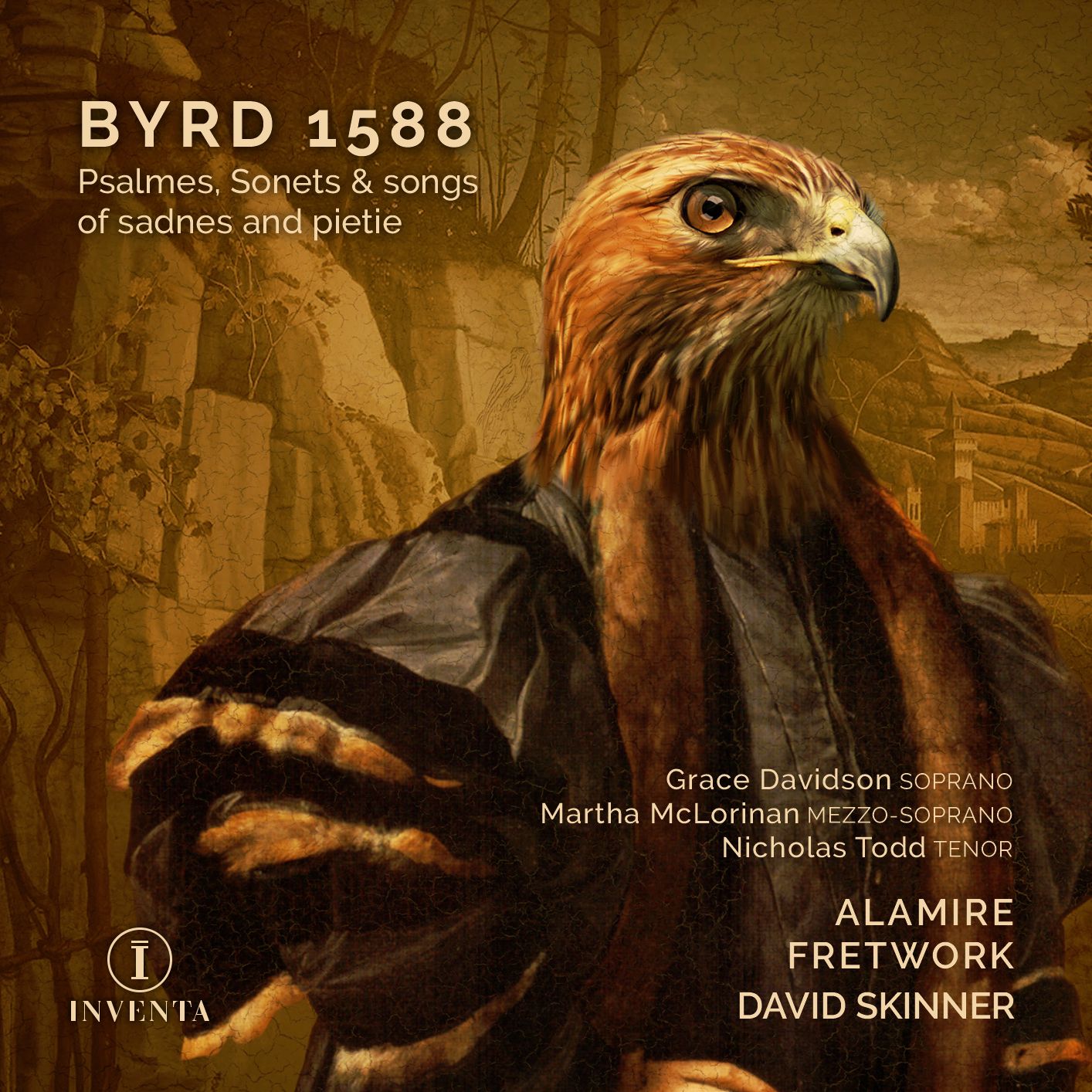Byrd 1588: Psaumes, Sonets & Songs of sadness and pietie
As the first complete recording of the 1588 collection, these discs obviously have huge musicological value; they hold immense treasures, too

This is a major rrecording event: a complete traversal on disc of William Byrd's 1588 publication Psalmes, Sonets & Songs of sadness and pietie from the Inventa label. Byrd was the favourite composer of Queen Elizabeth I, and in 1575, she had granted Byrd and his friend and fellow composer Thomas Tallis exclusive printing rights for music in England (the most famous fruits of that deal was the famous collection Cantiones sacrae) . Tallis sadly died in 1585; but in 1588, under the patronage of Sir Christopher Hutton (1540-91), the present collection was published.
The venue of this recording is significant - Holdenby House, Northamptonshire, orignally as big as Hampton Court and owned by Hatton (the original building was pulled down in the 17th century; the reconstruction is an eighth of the original size). The 14th-century church in the grounds survives, though, and taht is where this recording took place.
"Byrd's language is so cogent and so immediate that he kind of speaks to us through the notation"; as David Skinner says, there is everything in this publication. Skinner's introduction to the music is generous (over seven minutes), detailed and full of enthusiasm for this remarkable project, plus we get to enjoy views of the venue itself:
The music in the collection is massively varied, but surely nowhere more poignant than in the song Come to me Grief Forever. Infinitely lachrymose, is on the video too. "If you do not cry to this, then you're not human," says Skinner in the video. Here it is; get the hankies out!:
... and from that to the blissful polyphony of La Virginella, a setting of text from Ludovico Ariosto's Orlando Furioso:
... while the psalm Even from the Depth has indeed such profundity of utterance it reminded me ofthe music of Victoria:
The two discs are each divided into Psalms, Sonnets and Pastorals, Songs of sadness and piety and both end with funeral songs for Sir Philip Sidney; they make for parallel programmes each satisfying in themselves, but a complete listening of both discs remains a revelatory experience. As the first complete recording of the 1588 collection, these discs obviously have huge musicological value; they hold immense treasures, too.
Let's hear two examples of the variety on display here. Firstly, an instrumental track that showcases the virtuosity of the viol group Fretwork, the beautiful How shall a young man prone to ill:
and to close, a brighter work, perhaps, the soprano song Though Amaryllis dance in green, performed by the amazing Grace Davidson with Fretwork, shot through with light and rhythmic play:
A beautiful and brilliant release, superbly recorded by Nigel Short and Adam Binks; and a significant addition to the catalogue.
